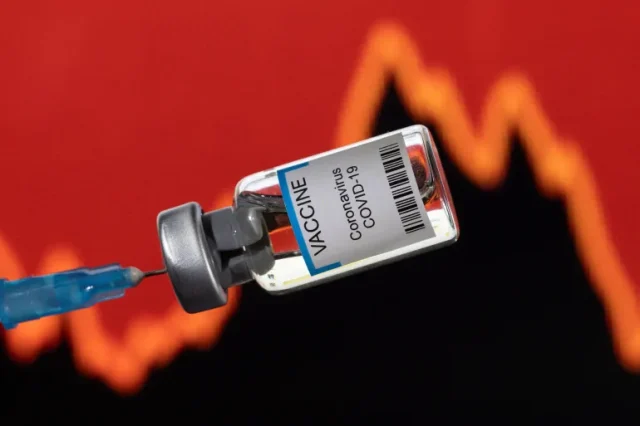At the height of the COVID-19 pandemic, the United States military launched a secret campaign to counter what it perceived as China’s growing influence in the Philippines, a nation hit especially hard by the deadly virus, an investigation by the Reuters news agency has found.
Through phony internet accounts meant to impersonate Filipinos, the military’s propaganda efforts morphed into an anti-vaccination campaign, Reuters reported in a story released on Friday. Social media posts decried the quality of face masks, test kits and the first vaccine that would become available in the Philippines – China’s Sinovac inoculation.
The clandestine operation has not been previously reported. It aimed to sow doubt about the safety and efficacy of vaccines and other life-saving aid that was being supplied by China, the Reuters investigation found.
It identified at least 300 accounts on X, formerly Twitter, that matched descriptions shared by former US military officials familiar with the operation. Almost all were created in the middle of 2020 and centred on the slogan #Chinaangvirus – Tagalog for “China is the virus.”
“COVID came from China and the VACCINE also came from China, don’t trust China!” one typical tweet from July 2020 read. The words were posted next to a photo of a syringe beside a Chinese flag and a soaring chart of infections. Another post read: “From China – PPE, Face Mask, Vaccine: FAKE. But the Coronavirus is real.”
After Reuters asked X about the accounts, the social media company removed the profiles, determining they were part of a coordinated bot campaign based on activity patterns and internal data.
The US military’s anti-vax effort began in the spring of 2020 and expanded beyond Southeast Asia before it was terminated in mid-2021.
The Pentagon tailored the campaign to local audiences across Central Asia and the Middle East using a combination of fake social media accounts on multiple platforms to spread fear of China’s vaccines among Muslims at a time when the virus was killing tens of thousands of people each day.
A key part of the strategy: amplify the disputed contention that, because vaccines sometimes contain pork gelatin, China’s shots could be considered forbidden under Islamic law.
The military programme started under former President Donald Trump and continued months into Joe Biden’s presidency – even after alarmed social media executives warned the new administration that the Pentagon had been trafficking in COVID misinformation, Reuters said.
The Biden White House issued an edict in spring 2021 banning the anti-vax effort, which also disparaged vaccines produced by other rivals, and the Pentagon initiated an internal review.
Spokespeople for Trump and Biden did not respond to requests for comment about the clandestine programme, Reuters reported.
A senior Department of Defense official acknowledged the US military engaged in secret propaganda to disparage China’s vaccine in the developing world, but the unnamed official declined to provide details.
A Pentagon spokeswoman said the US military “uses a variety of platforms, including social media, to counter those malign influence attacks aimed at the US, allies and partners”. She alleged China started a “disinformation campaign to falsely blame the United States for the spread of COVID-19”.
‘Dismayed, disappointed, disillusioned’
In an email, the Chinese Ministry of Foreign Affairs said it has long maintained the US government manipulates social media and spreads misinformation.
A spokesperson for the Philippines Department of Health said the “findings by Reuters deserve to be investigated and heard by the appropriate authorities of the involved countries”.
Some American public health experts condemned the Pentagon programme, saying it put civilians in jeopardy for potential geopolitical gain.
“I don’t think it’s defensible,” said Daniel Lucey, an infectious disease specialist at Dartmouth College’s Geisel School of Medicine. “I’m extremely dismayed, disappointed and disillusioned to hear that the US government would do that.”
The effort to stoke fear about Chinese inoculations risked undermining overall public trust in government health initiatives, including US-made vaccines that became available later, Lucey and others said.
Although the Chinese vaccines were found to be less effective than the American-led shots by Pfizer and Moderna, all were approved by the World Health Organization. Sinovac did not respond to a request for comment.
“It should have been in our interest to get as much vaccine in people’s arms as possible,” said Greg Treverton, former chairman of the US National Intelligence Council, which coordinates the analysis and strategy of Washington’s many spy agencies.
What the Pentagon did, Treverton said, “crosses a line”.








































